More than 300 plant species in flower show entry
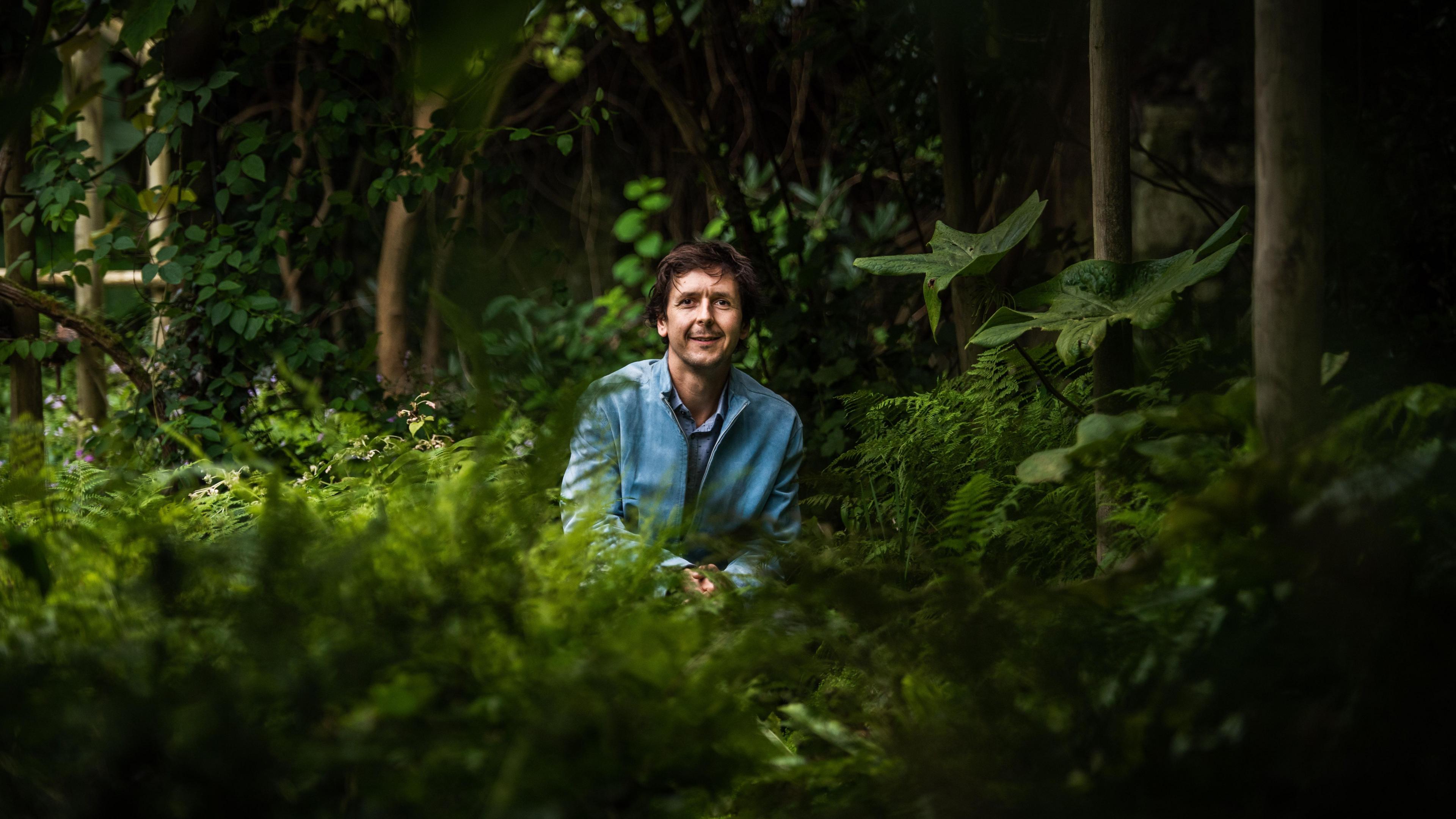
Designer Dan Bristow will include 313 species of plants in his garden at Chelsea
- Published
Garden designers across the globe are frantically putting the finishing touches to their entries for this year's Chelsea Flower Show.
But spare a thought for the team from Wales which has set itself the challenge of using more than 300 different species of plants.
The Size of Wales garden, external is thought to be the most biodiverse entry in the prestigious flower show's history.
Its aim is to raise awareness of the need to protect the world's rainforests, home to half of all animal and plant species on the planet.
How Wales' ancient rainforests inspired folklore
- Published18 February 2024
Rescue mission for UK rainforests’ weird treasures
- Published21 October 2023
UK to ban illegally logged rainforest products
- Published11 November 2020
"We're using 313 different species of plants, which reflects the number of different tree species that can occur in just one hectare of tropical forest," said designer Dan Bristow, from Bethesda, Gwynedd.
Getting them all ready for Chelsea week, which begins on Monday, had been "hugely challenging", not to mention making sure a garden packed with such variety had a "flowing and cohesive" design.
While the garden will feel "as far away from the everyday and familiar as possible", all the plants being used can and have been grown in the UK.
It's hoped the design will inspire people to make the planting in their own gardens more diverse - to benefit wildlife, Mr Bristow said.
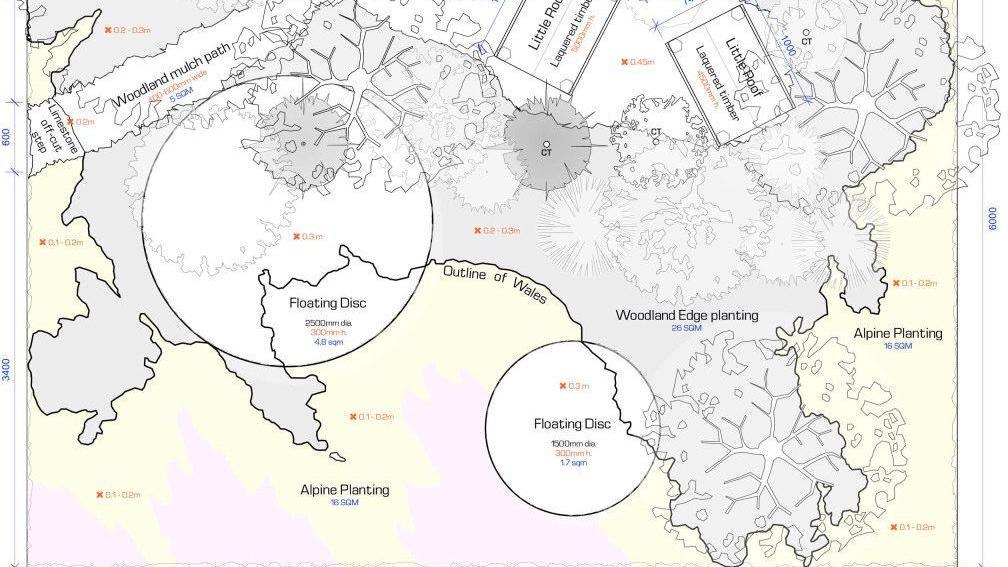
Part of the plan for the garden, which has been designed in the shape of Wales
The garden was commissioned by climate change charity Size of Wales, which works to protect areas of tropical rainforest overseas.
The Welsh links are obvious - with the garden itself designed in the shape of Wales, and most of the plants grown for the show in Welsh nurseries.
The planting will highlight some of the country's rarest species, including a critically endangered dandelion and hawkweed which are only found in Bannau Brycheiniog national park.
Until recently the total world population of the Beacons hawkweed (Hieracium breconicola) comprised a single plant on a mountain ledge, while the Brecon dandelion (Taraxacum breconense) - once found across Monmouthshire and Powys - is also on the verge of extinction.
Andrew Shaw, of the Rare British Plants Nursery near Builth Wells, Powys has been trying to rescue them by growing more from seeds held in storage at the Royal Botanic Gardens, Kew and said he was grateful for the opportunity to showcase that work.
"Hopefully it will bring them to a wider audience," he said.
He has supplied dozens of rare plants for the garden - including York Groundsel (Senecio eboracensis) - which he managed to resurrect in 2022, after it had been declared globally extinct.
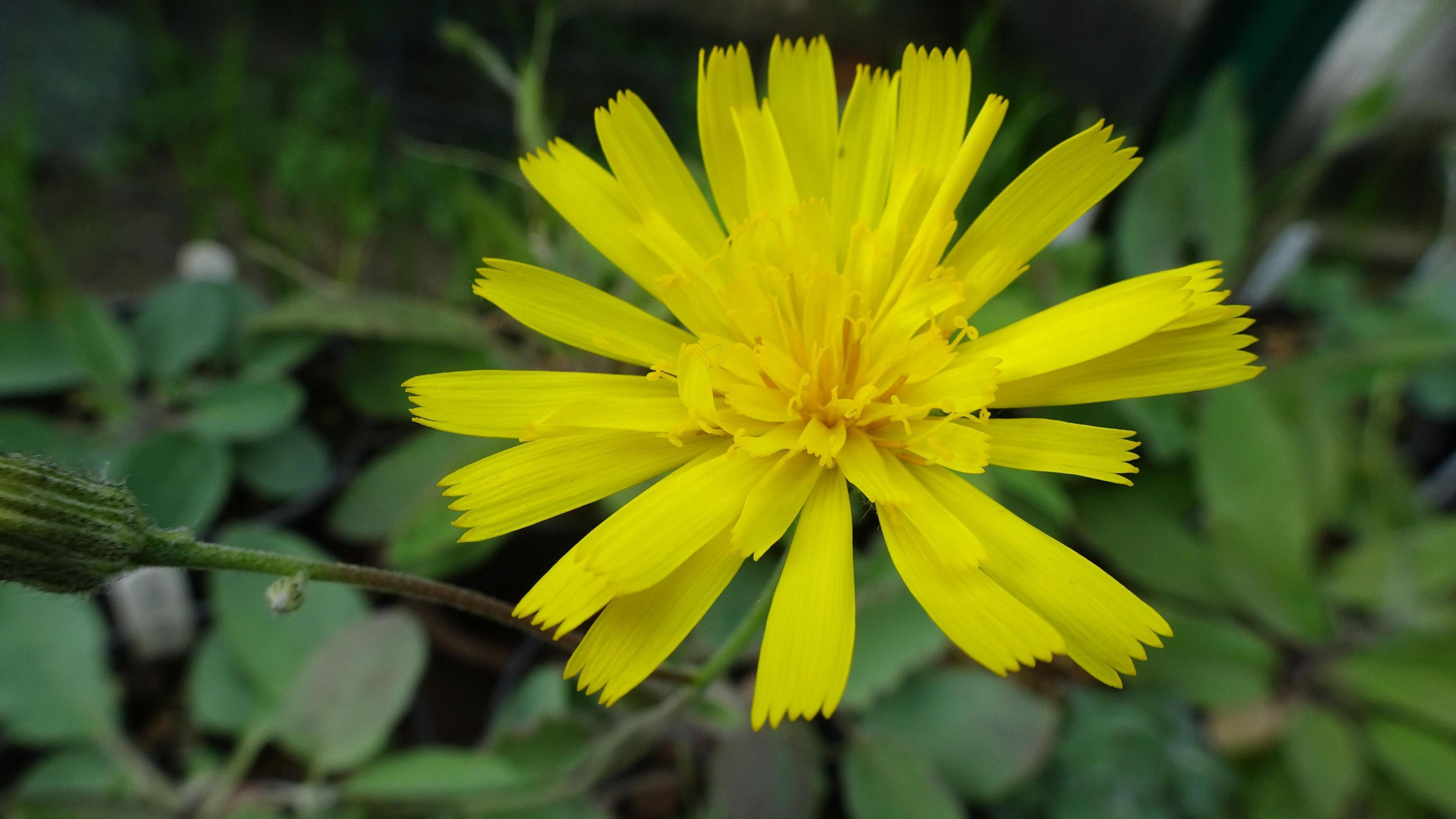
The garden will showcase some of Wales' rarest plants - like Beacons hawkweed
The project also relies on the efforts of modern-day plant hunters Sue and Bleddyn Wynn-Jones from Crûg Farm nursery near Caernarfon.
For the last 30 years, they have travelled the world in search of new exotic plants, and have helped select and grow many of the species being used in the Chelsea garden.
Sue said she was keen to be involved due to the garden's message and that "over the years we have seen what climate change is doing to our planet".
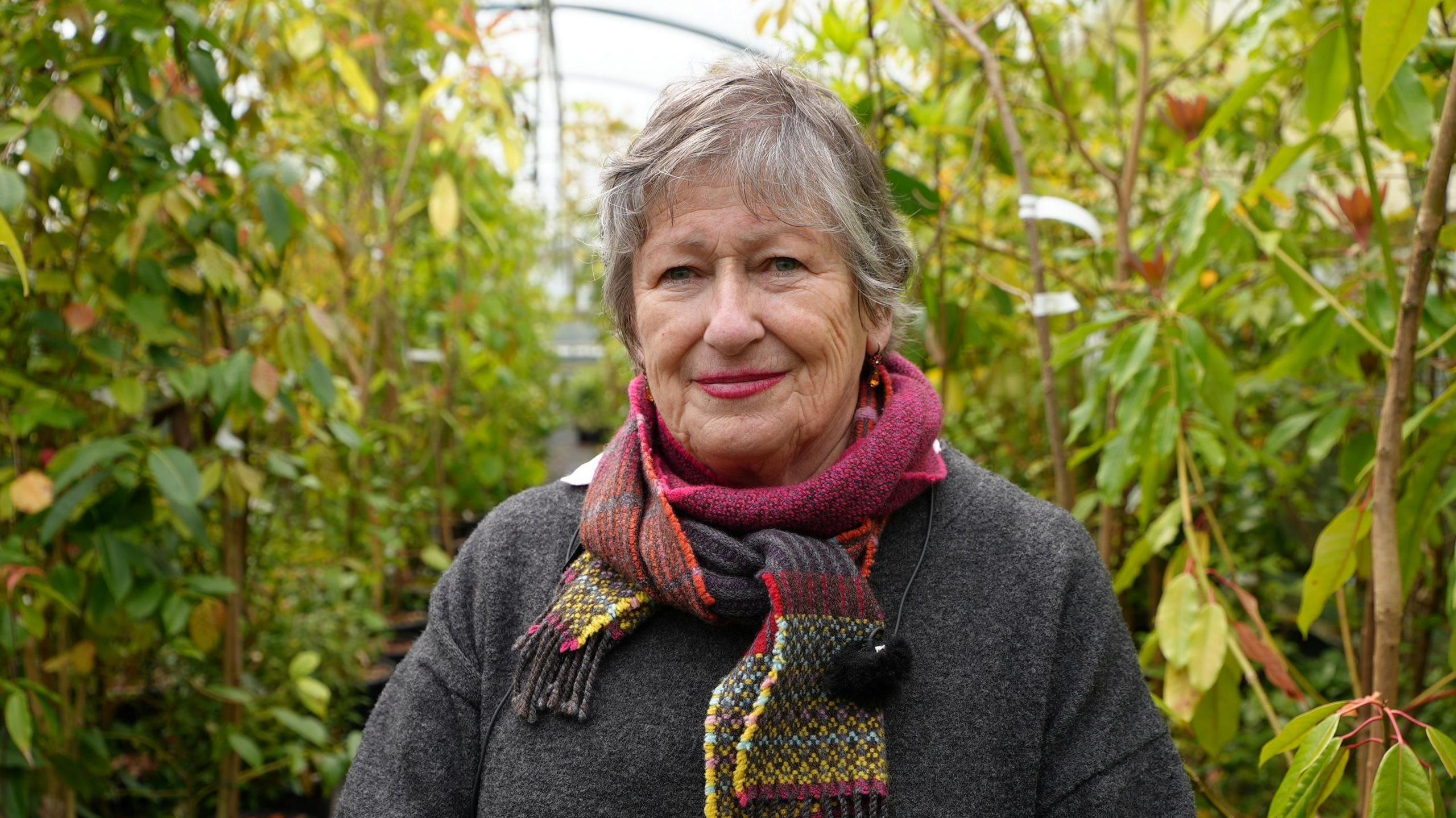
Botanist and explorer Sue Wynn-Jones has helped choose many of the plants
The RHS wants this year's flower show to focus on presenting environmentally sustainable garden designs.
For its structure, the Size of Wales garden is using timber milled from trees felled due to ash-dieback disease, waste stone offcuts from a quarry on Anglesey and a compostable rear wall made of mushrooms.
The garden will also be rebuilt after the show at Bangor University's Treborth Botanic Garden.
Curator Natalie Chivers said it would be a "really special and appropriate" home for the flower show's most biodiverse garden
"As gardeners we're really important advocates for spreading the message of climate change and how important it is to manage our land properly," she added.
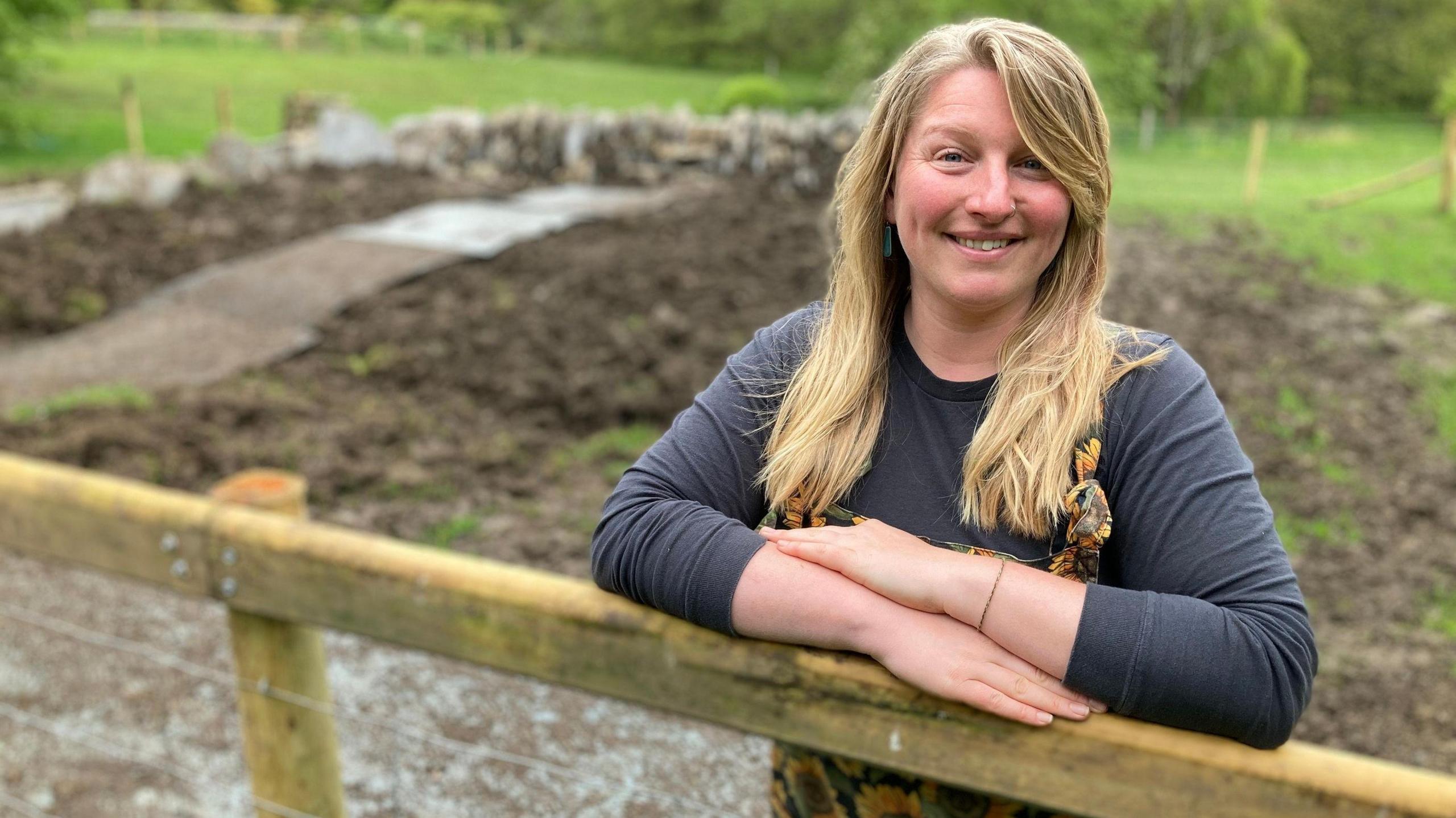
The garden will be moved to a permanent home at Treborth Botanic Garden.
Size of Wales' Kadun Rees said "an area of forest more than twice the size of Wales was lost in 2022".
"So we really want people to realise the abundance of biodiversity in tropical forests but also take action to protect them," he said.
This could include "taking simple steps" when buying products such as coffee, chocolate and paper - choosing those that are certified to ensure they are not contributing to deforestation overseas.